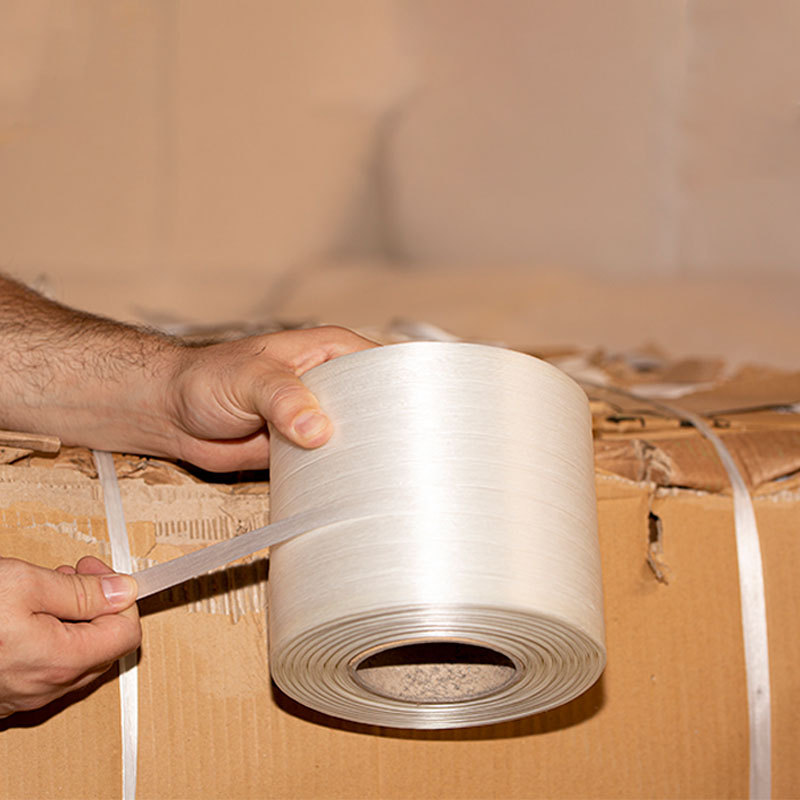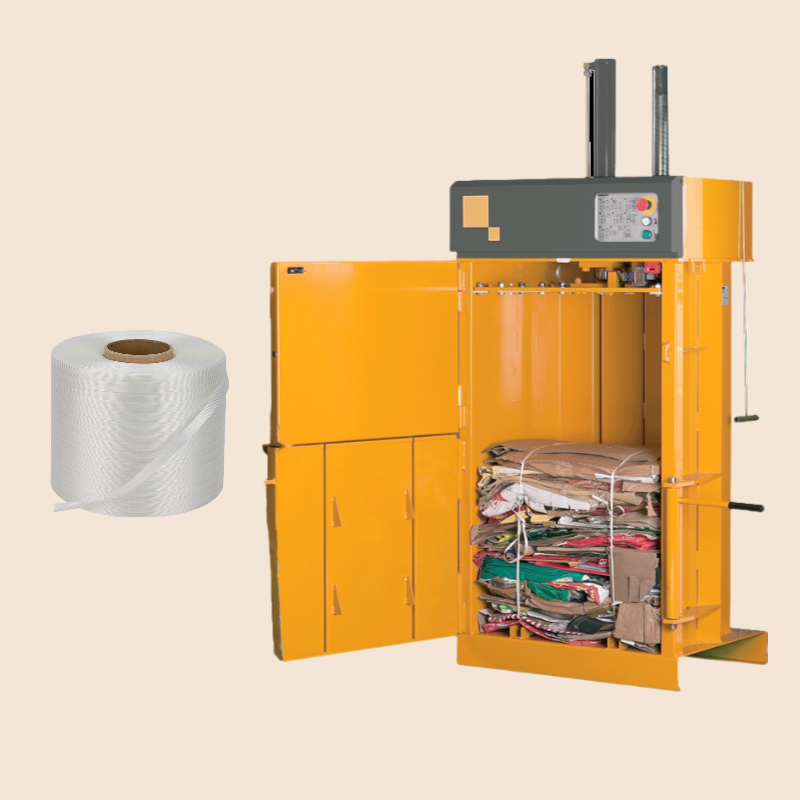Against the backdrop of global advocacy for sustainable development, the waste recycling industry is experiencing rapid growth. How to achieve efficient classification, packing, and transportation of waste materials has become a major concern for every recycling enterprise. The type of strapping used during the packing process directly affects packing efficiency, transportation safety, and overall cost control. Baling Tape, as a new type of strapping material, is gradually replacing traditional materials thanks to its excellent performance and wide applicability, making it a “star product” in the waste packaging process.
Baling Tape is a type of strapping made from high-strength polyester fibers twisted into bundles, with a special adhesive coating on the surface. Its structure maintains flexibility while offering excellent tensile strength and anti-slip properties. Compared to traditional steel straps, PET straps, and PP straps, Baling Tape stands out with its superior safety, durability, and ease of use.

First, in terms of strength, Baling Tape has a much higher tensile strength than ordinary plastic straps, reaching up to over 900 kilograms. This makes it suitable for most waste packaging scenarios, especially for bulky and heavy recycled materials such as cardboard boxes, plastic bottles, metal cans, and electronic waste. During transportation or handling, Baling Tape can firmly secure the waste bundles without breaking or loosening, ensuring the safety of the process.
Secondly, the twisted structure gives the tape excellent flexibility and resilience, allowing it to wrap tightly around irregularly shaped items and improve overall stability. While traditional steel straps offer high strength, their hardness and tendency to rebound pose safety risks and can injure workers during handling. In contrast, Baling Tape is soft to the touch and safe to handle, making it ideal for long-term and repetitive packing tasks.
Moreover, the adhesive surface of Baling Tape provides a certain level of anti-slip and bonding function, making it more secure when used with buckles or knots. This feature is especially important during stacking or long-distance transport, effectively preventing packages from loosening or collapsing, and reducing product loss and rework.
In terms of operational convenience, Baling Tape does not require specialized strapping machines. It can be used with simple manual tensioners, sealers, and metal buckles to complete the packaging process. For small and medium-sized recycling stations or mobile work environments, this significantly reduces equipment and training costs. Additionally, this material supports various strapping styles, including horizontal, vertical, bundling, and cross-pattern, allowing it to flexibly meet different packaging needs.
From an economic perspective, although the unit cost of Baling Tape is slightly higher than standard PP straps, its longer lifespan, low breakage rate, and stronger bundling make it more cost-effective in the long run. More importantly, its efficient performance greatly increases the packaging speed and loading efficiency at recycling stations, indirectly lowering labor costs and improving productivity.
From an environmental standpoint, Baling Tape is made of recyclable materials and aligns with the principles of green production. It generates no dust or noise during use, and unlike metal strapping, it does not rust, which makes it easier to maintain. In many regions, this type of strapping material is already widely used in paper recycling, plastic waste collection, metal compaction, and second-hand furniture packaging. It plays a vital role in the resource recycling and reuse chain.


Today, as environmental awareness grows and the recycling industry becomes more automated and standardized, traditional strapping materials can no longer meet the real demands of the market. More and more recycling companies and logistics warehouses are adopting Baling Tape to enhance packaging quality and operational efficiency. On the international stage, this product is also gaining popularity in Europe, Southeast Asia, Australia, and other regions, becoming a key material driving innovation in packaging methods.
In conclusion, with its outstanding performance, safe handling, and wide adaptability, Baling Tape is playing an increasingly important role in the waste recycling industry. Choosing Baling Tape is not only a step toward higher packaging efficiency, but also a commitment to employee safety, environmental responsibility, and long-term business development. For recycling enterprises striving to enhance their management and competitiveness, this is undoubtedly a more advanced and reliable packaging solution.